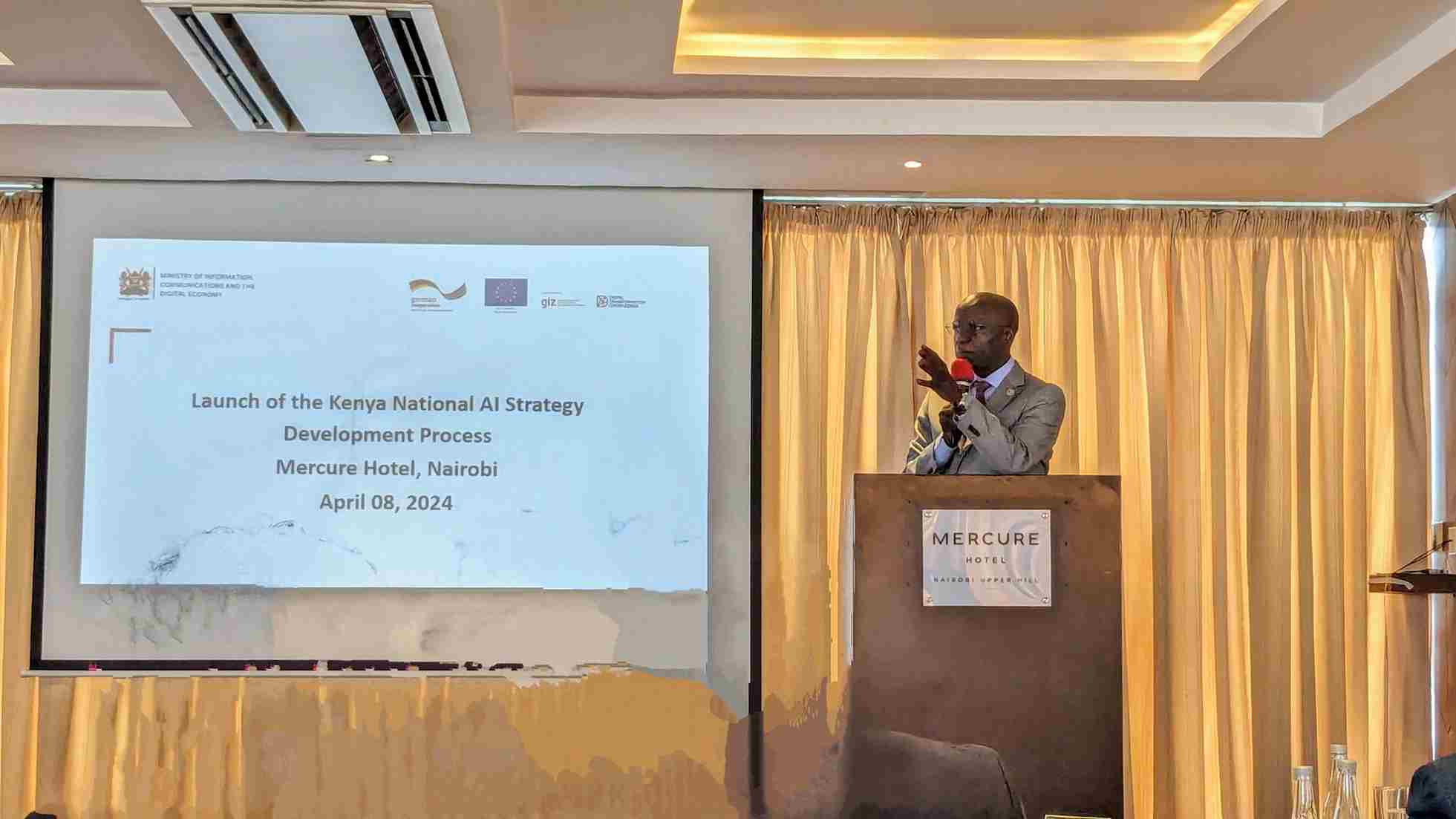By Linda Gichohi
On April 8, 2024, Kenya marked a significant step towards integrating Artificial Intelligence (AI) into its future. The Ministry of ICT and Digital Economy, in collaboration with Deutsche Gesellschaft für Internationale Zusammenarbeit (GIZ) GmbH, launched the National AI Strategy Development Process.
This initiative, “FAIR Forward – Artificial Intelligence for All,” emphasizes responsible AI development to drive sustainable growth.
Stakeholder Collaboration for a Robust AI Strategy
The project acknowledges AI’s potential and challenges. The launch event brought together academia, industry, government, and civil society stakeholders. Working groups focused on critical aspects like legal and data governance, a crucial element for responsible AI. Discussions highlighted the need for robust data privacy policies and mechanisms to protect individuals’ rights.
Beyond Regulation: A Holistic Approach to AI Governance
The discourse went beyond mere regulation, emphasizing a holistic approach that balances innovation with ethics. This includes investing in AI enablers like data infrastructure and talent development while mitigating risks. This proactive stance on AI governance positions Kenya as a leader in responsible AI development.
Kenya’s strategy prioritizes inclusivity and collaboration. The nation aims to build consensus and foster equitable partnerships by engaging diverse stakeholders. This collaborative approach ensures that AI benefits all of society.
Looking Forward: Sustainability and Societal Impact
The strategy development process prioritizes sustainability and societal impact. AI development must address climate change and inequality with Kenya’s goals. Ongoing collaboration and engagement will be crucial for a successful national AI strategy.
- Legal and regulatory frameworks are designed to safeguard individuals’ privacy rights while fostering innovation. These frameworks must strike a delicate balance, enabling data collection, processing, and use for AI applications while protecting against unauthorized access, misuse, and breaches and drawing inspiration from international standards such as the General Data Protection Regulation (GDPR) and the Data Protection Act 2019.
- Transparency and accountability are paramount in the governance of AI systems. Stakeholders must demand clear explanations of how algorithms make decisions and use data, holding AI developers and users accountable for data’s ethical and responsible use. With mechanisms for recourse in case of harm, this shall build trust and confidence in AI systems, ensuring that they serve the common good.
- Ethical considerations loom large in the development and deployment of AI. Issues such as bias, fairness, and discrimination must be addressed in AI systems, integrating ethical guidelines and principles into their strategy. Promoting diversity and inclusivity in AI development will aim to create algorithms that reflect the values and perspectives of diverse communities.
- Privacy by design principles underpin Kenya’s approach to AI system development. By embedding privacy and data protection measures from the outset, Kenya shall seek to minimize privacy risks while maximizing utility. Through the use of privacy-enhancing technologies and techniques, this shall aim to strike a balance between innovation and privacy protection.
- Facilitating responsible data sharing and collaboration is another key objective for Kenya’s AI strategy. While promoting data sharing among stakeholders, Kenya shall safeguard individual privacy rights and ensure that data-sharing practices adhere to legal and ethical requirements. Guidelines and standards for data sharing agreements will facilitate responsible data sharing while upholding privacy principles. Collaboration with other stakeholders, a multi-stakeholder approach, and the Office of the Data Protection Commissioner are crucial in the development process of the AI strategy.
- Monitoring and enforcement mechanisms will ensure compliance with data privacy and governance standards. Kenya will monitor adherence to data protection laws and regulations through audits, assessments, and oversight bodies. Noncompliance penalties will be enforced to deter data misuse and uphold trust in AI systems. Capacity building and awareness initiatives will foster a culture of data stewardship and responsible innovation in Kenya. Investments and capacity-building programs of the National AI strategy shall enhance awareness and understanding of data privacy and governance principles among AI developers, users, and policymakers. Through these efforts, Kenya is laying the groundwork for a future where AI is a force for good, guided by responsibility, transparency, and ethical practice principles.
In conclusion, Kenya’s journey into the AI era is marked by optimism and determination.
By embracing data governance as a cornerstone of AI development, the nation lays the foundation for a future where technology serves the common good, guided by responsibility, transparency, and ethical practice.
As the National AI strategy is developed and evolves, Kenya stands poised to lead the way towards a more inclusive and sustainable future powered by AI.
Linda Gichohi is a lawyer, a KICTANet Legal Fellow, and a Gender Program Assistant. She has an interest in women’s digital rights and access to justice for technology-facilitated violence.
![]()





Trackbacks/Pingbacks